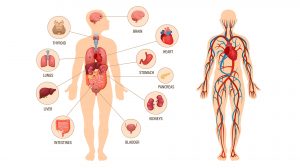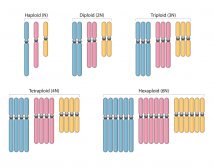Definition
noun, plural: megakaryocytes
A large cell in the bone marrow with characteristic lobulate nucleus and is primarily involved in the production of blood thrombocytes or platelets
Supplement
Hematopoiesis is the process of forming new blood cellular elements in vertebrates. In this regard, thrombopoiesis is a hematopoiesis leading to the formation of thrombocytes. It begins with a multipotent stem cell, a hemocytoblast, which gives rise to a common myeloid progenitor cell. The progenitor cell, in turn gives rise to colony forming unit (particularly, CFU-Me, which is also referred to as CFU-Meg or CFU-Mega) fated to become megakaryocytes. The CFU-Me gives rise to megakaryoblasts. A megakaryoblast is the precursor for a promegakaryocyte. The promegakaryocyte, in turn, is the precursor cell for a megakaryocyte. The process in which the promegakaryocyte differentiates into a mature megakaryocyte is called megakaryopoiesis. Thrombopoietin is the hormone that stimulates megakaryopoiesis. The hormone is produced by the liver and the kidney, and encoded by the THPO gene.
Megakaryocytes are the mature form of promegakaryocytes. These cells owe their name from their large cell size that is 10 times larger than a typical erythrocyte. It is large because within the cell the DNA replicates but does not involve cytokinesis, a process referred to as endoreduplication. Thus, the cell appears to contain many nuclei but it only has a single nucleus that became large and lobulated. The demarcation membrane system forms to demarcate platelets, which soon break off from the megakaryocyte and move to the peripheral blood.
A metamegakaryocyte is a form of megakaryocyte with aggregated granules in the cytoplasm. Granular platelets begin to form at the periphery of the cytoplasm of a metamegakaryocyte.
Word origin: Greek mégas (“large”) + Greek karuo– (“nut”) + –cyte (cell)
Variant(s):
- megacaryocyte
Synonym(s):
See also:
- thrombopoiesis
- megakaryoblast
- platelet
- thrombocytic series
Related form(s):







